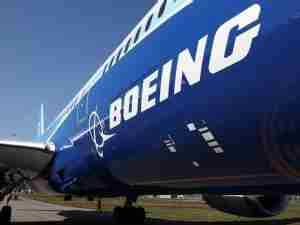Assorted analysts and pundits are calling domestic airfreight a "vanishing industry." Domestic air cargo had been declining even before the current, deep Recession slugged our economy. Today, airfreight within the US is a shadow of its once vigorous self.' Shippers are abandoning traffic by air in droves as they increasingly veto'this supposedly high cost of moving their merchandise. Domestic airfreight statistics truly are horrendous. Volume is down by 25-30%. Shippers are telling'their forwarder agents to move their freight by truck "except in the direst emergencies."
All-cargo domestic airlines have disappeared from the skies. Carriers like Kitty Hawk are a distant memory. Integrators like BAX-Global move most of their customers' "airfreight" by truck. Skilled, experienced airfreight veterans at the airlines are unceremoniously getting the heave-ho or are forced to retire.
Is domestic airfreight an endangered species? Is the industry going back to the future as'primarily a conveyor of emergency shipments--identical to its position just after World War II when'freight first took to the skies?
I believe the death of domestic airfreight has been grossly exaggerated.' I also believe flying cargo within the US once again can become growing element in the nation's transportation mix--recession or no recession. Shippers would utilize air to a greater extent if intelligent, persuasive reasons were given by airlines and forwarders. But airline management's attitude, whose aircraft are the foundation of our business, must change. They must spend less time thinking up new ways to extract dollars from' passengers' wallets and more time in creating cargo systems that will generate hundreds of millions of additional dollars in profitable cargo revenues.' As a start, airlines must change their often adversarial'relationship with forwarders who provide 75% of their domestic cargo business, to a spirit of genuine cooperation.
The difference in attitude between'domestic and international airlines is stark. While Northwest (now Delta) grounds its entire 747 freighter fleet, international carriers promote their cargo divisions with men, money and marketing. Air cargo is a significant contributor both to their revenues and bottom line. Domestic carriers have a far different and often derogatory attitude toward their cargo departments. They'are treated like stepchildren. Domestic carriers have reduced their cargo staffs almost to the vanishing point.'They have closed cargo offices and outsourced freight operations to general sales agents.
Our company's offices are less than a mile from LAX. We are a major wholesaler and forwarder. Yet, I haven't seen a domestic airline rep cross our threshold in almost two years.
The potential for increased domestic cargo business remains strong. Air freight generates only about two percent of intercity traffic, a percentage that has not changed in 30 years. Interestingly, when the CAB ruled civil aviation 30 years ago, forwarders often generated 25 and 30% yields. Today, thanks to an unrestrained "free market," we struggle to maintain 2 and three percent margins. Shippers must realize air is a premium product and demands a premium price.
In serving customers, forwarders want at a minimum, more honesty and less doubletalk from the carriers.' Like:
- Keeping information to a minimum. When changing schedules or replacing wide bodied aircraft with narrow ones, particularly on high traffic routes, don't keep it a secret. Continental, for example, substituted all domestic wide bodies for smaller, narrow bodied aircraft almost overnight without a peep from Houston.
What often occurs when a substitution takes place is that cargo does not move as intended. The carrier then tells the forwarder that if he wants to place his cargo aboard the original flight, express rates must be paid. These can be up to 200% greater than the original tariff. Try justifying a tripling of rates to your customer!











